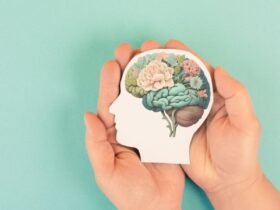In recent years, there has been a growing recognition of the importance of mental well-being. Understanding mental health, knowing how to support yourself and others, and accessing resources are crucial steps towards creating a healthier, more compassionate society. Let’s explore what mental health really means, how to recognize signs of distress, and where to find help if needed.
Mental health matters and you are stronger than you think!
What is Mental Health?
Mental health encompasses our emotional, psychological, and social well-being. It affects how we think, feel, and act, influencing how we handle stress, relate to others, and make choices. Good mental health isn’t just the absence of mental illness; it involves resilience, coping skills, and a positive sense of self.
Why Mental Health Awareness Matters
Breaking Stigma
Historically, mental health has been stigmatized, leading to fear, misunderstanding, and discrimination. Increasing awareness helps dismantle these barriers, encouraging open conversations and reducing stigma.
Early Intervention
Recognizing symptoms of mental health challenges early allows for timely intervention and support, improving outcomes and quality of life.
Promoting Well-being
By prioritizing mental health, individuals can enhance their overall well-being, resilience, and ability to navigate life’s challenges.
Signs of Good Mental Health
- Emotional Balance: Feeling generally content and able to manage daily stresses.
- Resilience: Bouncing back from setbacks and adapting to change.
- Positive Relationships: Forming and maintaining supportive connections.
- Effective Coping: Using healthy strategies to manage stress and emotions.
Signs of Mental Health Challenges
- Persistent Sadness or Mood Swings
- Withdrawal from Social Activities
- Changes in Sleep or Appetite
- Difficulty Concentrating or Making Decisions
- Increased Substance Use
- Unexplained Aches or Pains
Supporting Mental Health
Self-Care Practices
- Prioritize Sleep: Aim for 7-9 hours of quality sleep each night.
- Stay Active: Exercise boosts mood and reduces stress.
- Healthy Diet: Eat nutritious meals to support brain function.
- Mindfulness: Practice meditation or deep breathing to reduce stress.
Seeking Support
- Therapy: Professional counseling provides tools to manage challenges.
- Support Groups: Connecting with peers facing similar experiences offers validation and understanding.
- Hotlines: Crisis lines offer immediate support for those in distress.
- Online Resources: Websites and apps provide information and self-help tools.
Resources for Mental Health Support
- National Alliance on Mental Illness (NAMI): Provides education, support, and advocacy for individuals and families.
- Crisis Text Line: Text HOME to 741741 for free, confidential crisis support.
- Psychology Today: Find therapists, psychiatrists, and support groups in your area.
- Substance Abuse and Mental Health Services Administration (SAMHSA): Offers treatment locator and resources for mental health and substance use disorders.
Ending the Stigma
Education and Awareness
- Educate Yourself: Learn about different mental health conditions and their symptoms.
- Start Conversations: Encourage open discussions about mental health with friends, family, and colleagues.
- Challenge Misconceptions: Correct misinformation and promote understanding.
Conclusion
Mental health awareness is a journey of understanding, empathy, and support. By learning to recognize signs of distress, promoting self-care, and accessing resources, we can all contribute to a society that values mental well-being. Whether you’re seeking help for yourself or supporting others, remember that seeking support is a sign of strength, not weakness. Together, let’s break down barriers, foster resilience, and promote a world where mental health is prioritized and supported.
Remember, you are not alone. Help is available, and recovery is possible. Let’s continue to raise awareness, support each other, and build a healthier, more compassionate community. Here’s to mental health awareness and a brighter future for all!


















2 Comments
View Comments